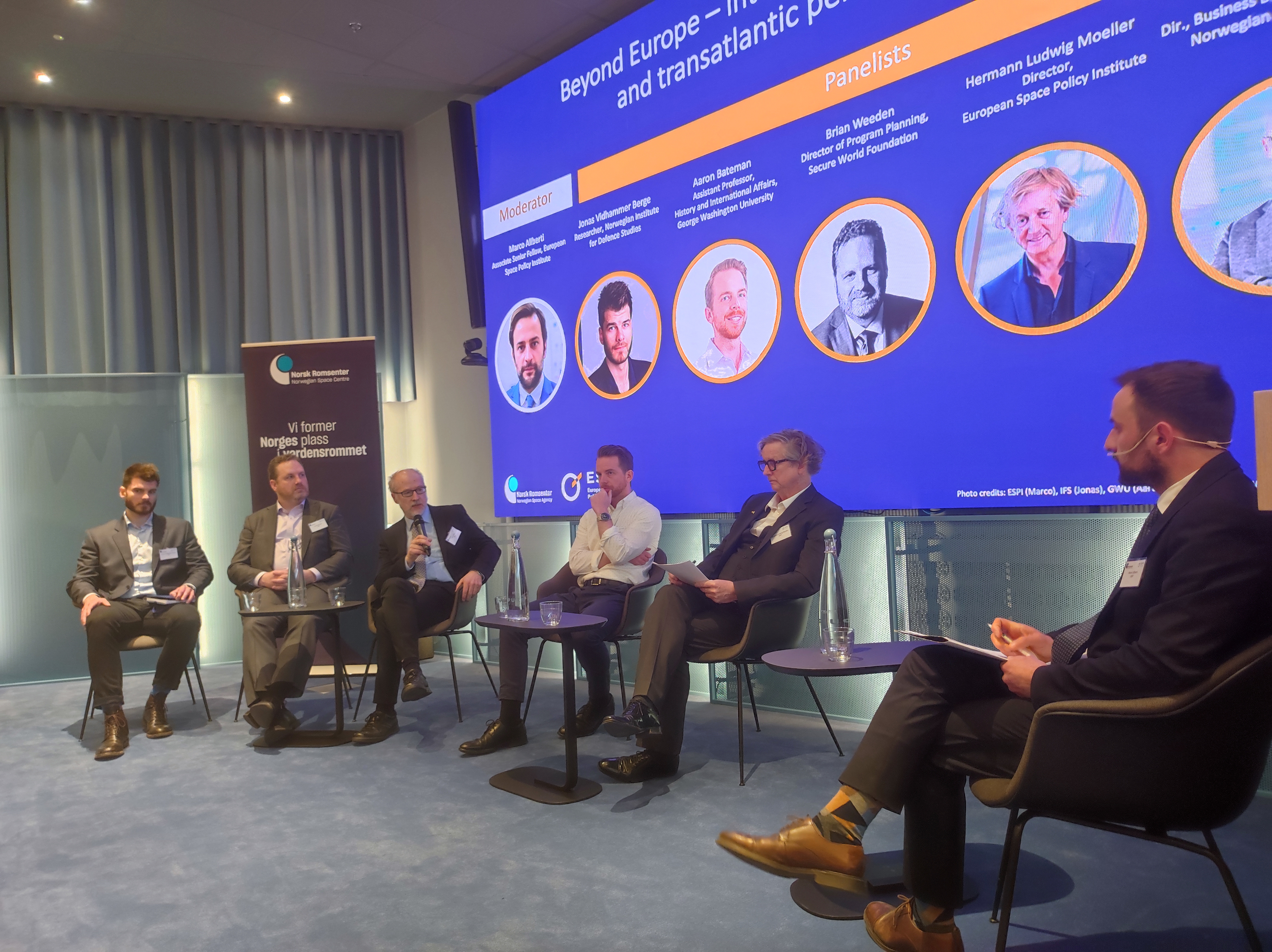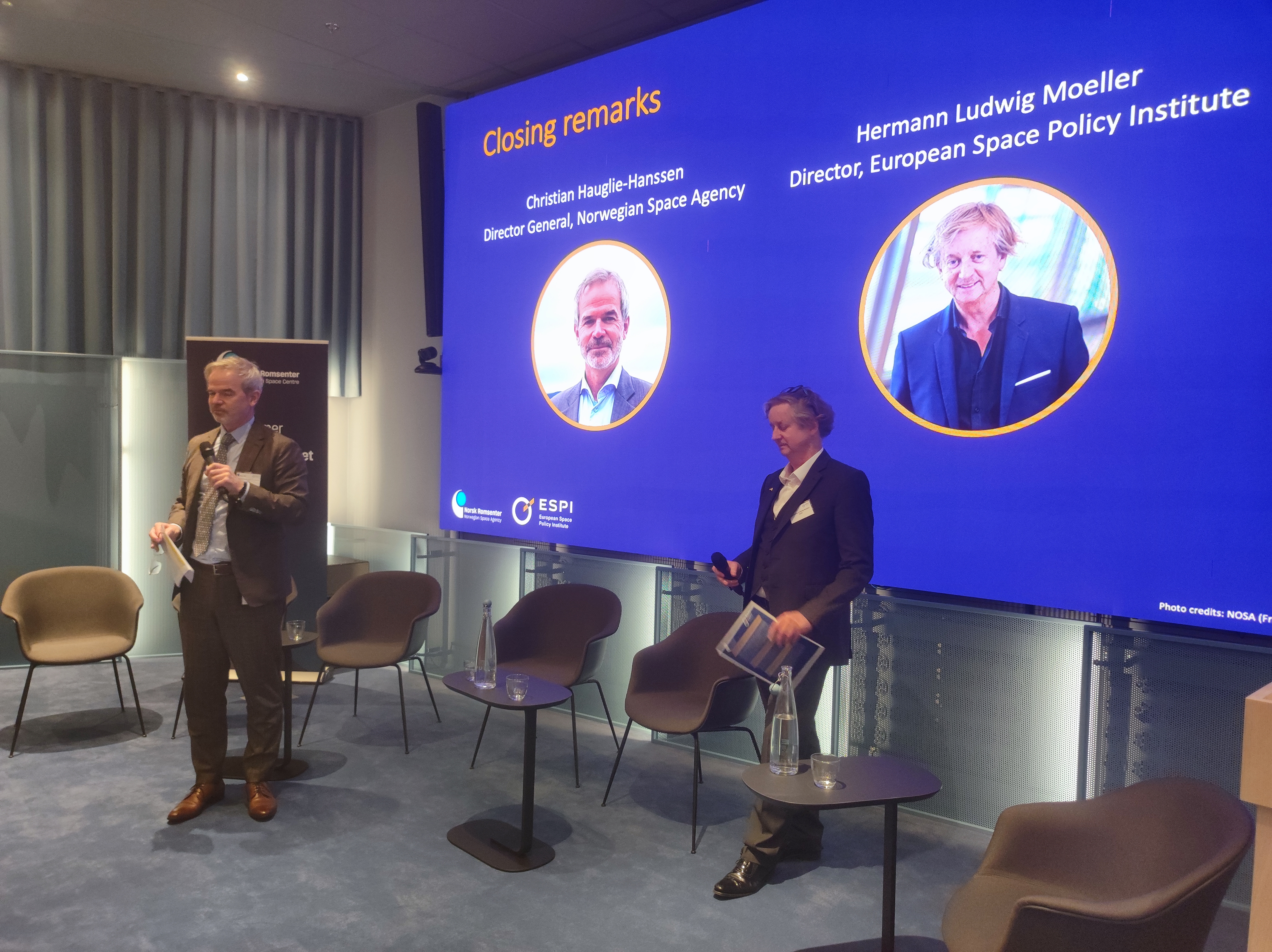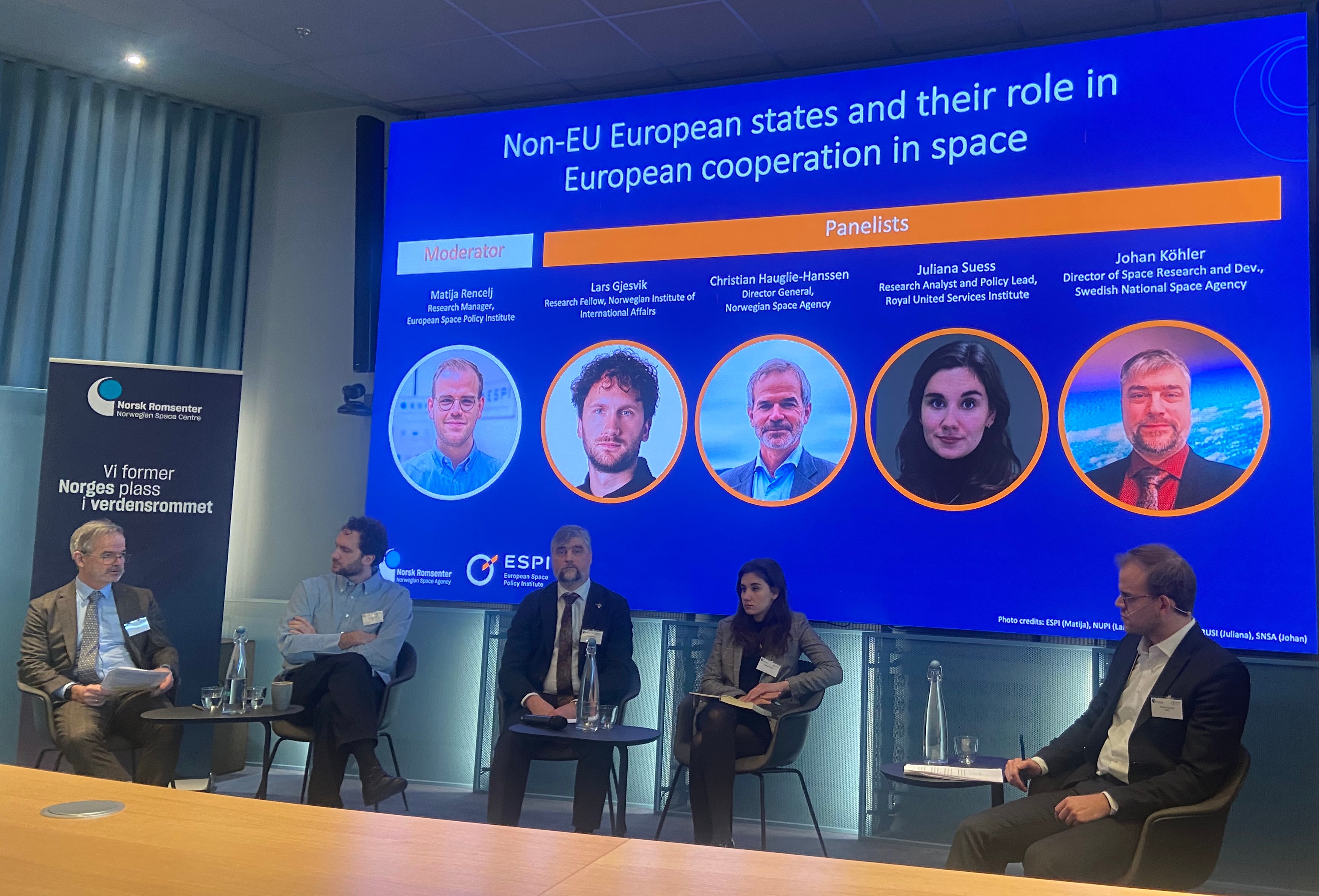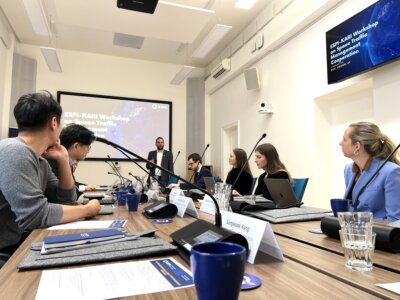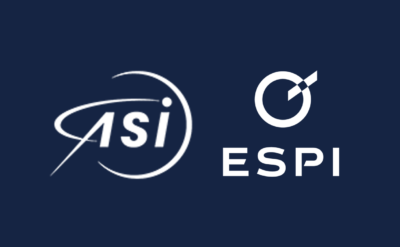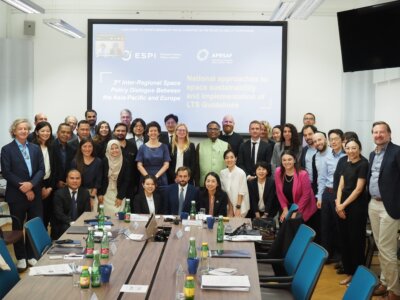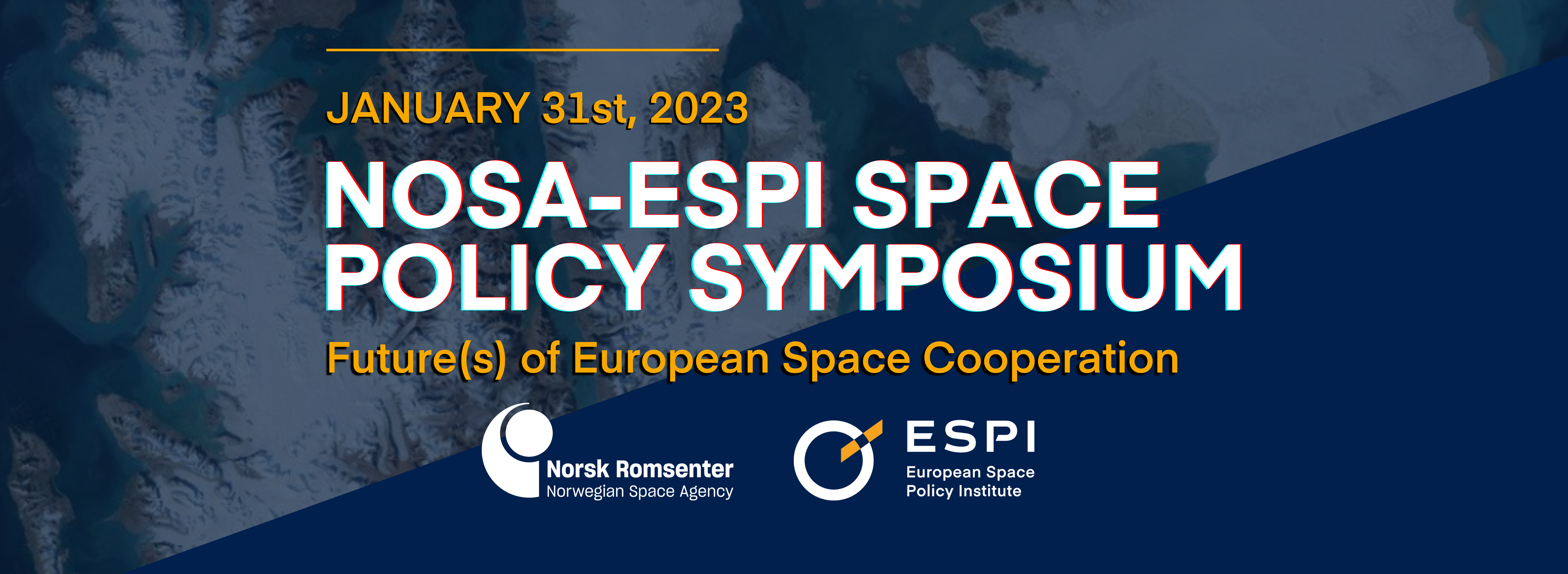
By: Veronika Ruskova
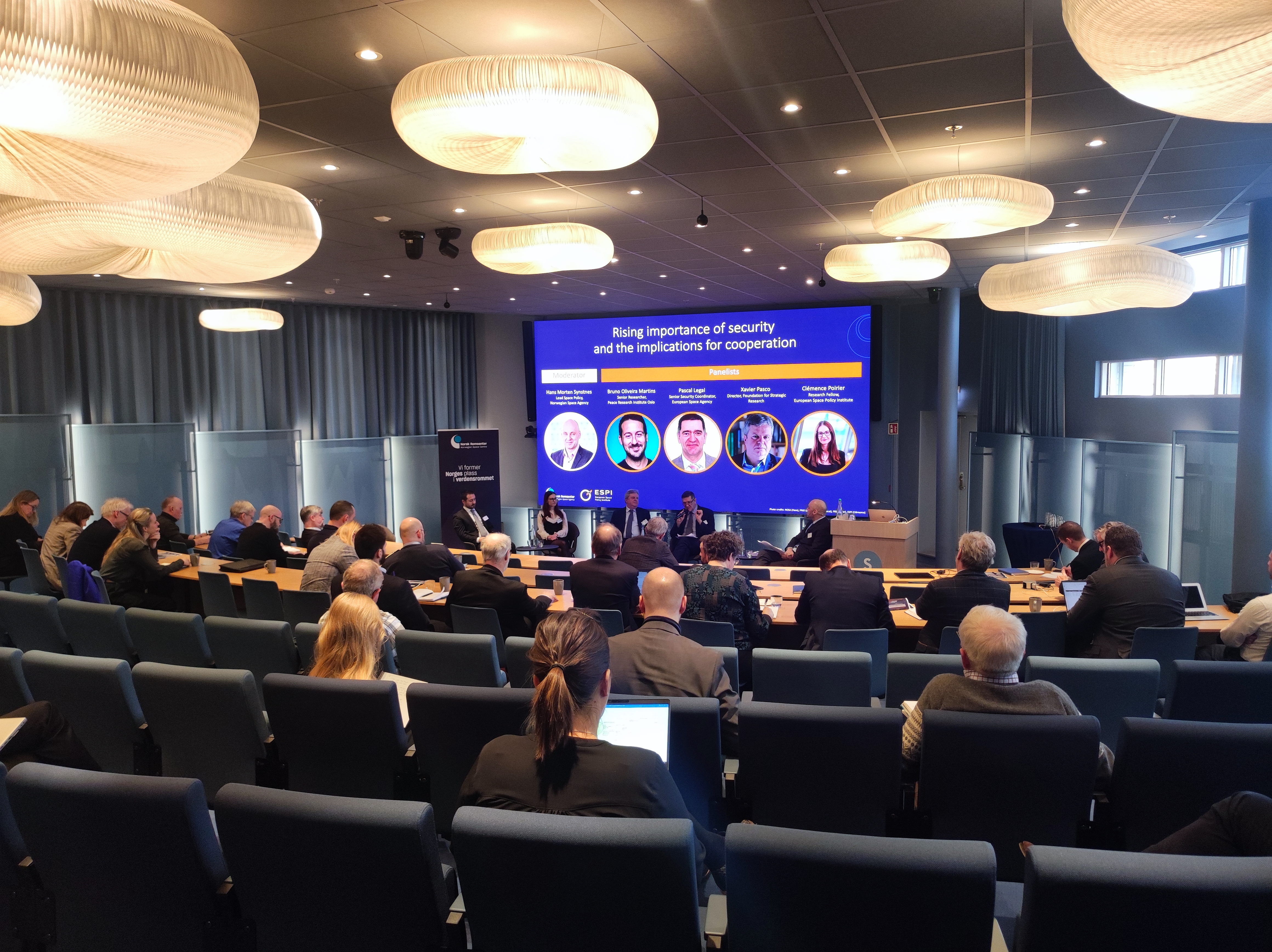
The Space Policy Symposium, held by the Norwegian Space Agency and the European Space Policy Institute, explored the theme of the “Future(s) of European Space Cooperation” on January 31st in Oslo, Norway.
Throughout the day, keynote speeches were given by Christian Hauglie-Hanssen of the Norwegian Space Agency, MoP Lene Westgaard-Halle, and Hermann-Ludwig Moeller, Director of the European Space Policy Institute.
The first panel of the Space Policy Symposium, titled “Non-EU European states and their role in European cooperation in space,” explored the future of European space cooperation between non-EU and EU states. The panelists discussed the concept of open strategic autonomy and the role of non-EU states in the cooperation. They also examined the challenges and opportunities for cooperation between ESA-EU and the participation of non-EU states in ESA programs funded by the EU. The discussion also touched upon the commercial prospects of space cooperation, including investment, acquisitions, and joint ventures, and their role in pan-European space cooperation. The panelists focused on concrete examples of how non-EU states can contribute to wider European ambitions in the Arctic, maritime surveillance, climate, connectivity, and other contexts. The panelists emphasized the importance of shaping and implementing shared values, ambitions, and objectives in future European space cooperation mechanisms. Matija Rencelj, Research Manager at the European Space Policy Institute, moderated the panel.
 The second panel of the Space Policy Symposium, titled “Rising importance of security and the implications for cooperation,” focused on the links between security policies and space programs in light of the rapidly changing security environment and increased tensions both on Earth and in space. The panelists discussed the development and exploitation of civil and defense capabilities in the commercial space market and the opportunity to bridge capability gaps through space. They emphasized the impact of the evolving security landscape on pan-European and international cooperation, including the EU Space and Defense Strategy, the security dimension of long-standing and new ESA programs, and prospects for leveraging existing and planned European space assets for international cooperation. Clémence Poirier from the European Space Policy Institute was one of the participants in the panel.
The second panel of the Space Policy Symposium, titled “Rising importance of security and the implications for cooperation,” focused on the links between security policies and space programs in light of the rapidly changing security environment and increased tensions both on Earth and in space. The panelists discussed the development and exploitation of civil and defense capabilities in the commercial space market and the opportunity to bridge capability gaps through space. They emphasized the impact of the evolving security landscape on pan-European and international cooperation, including the EU Space and Defense Strategy, the security dimension of long-standing and new ESA programs, and prospects for leveraging existing and planned European space assets for international cooperation. Clémence Poirier from the European Space Policy Institute was one of the participants in the panel.
The third panel of the Space Policy Symposium, titled “Beyond Europe – International Cooperation and Transatlantic Perspectives,” explored the increasing competition and diversity in the international space landscape and the need for Europe to decide its role as a reinforced global actor. The panelists focused on European ambitions in exploration and cislunar space, discussed perspectives on European strategic and non-dependency paradigms, and considered the challenges and opportunities for international cooperation and rulemaking for space activities. They also discussed re-emerging trends of bilateral cooperation between European countries and the United States, and the revised approaches to building international alliances for space activities, with a focus on European transatlantic relations with North America and beyond. The panel was moderated by Marco Aliberti, an Associate Senior Fellow at the European Space Policy Institute, while ESPI Director Ludwig Moeller also participated. The conference was closed jointly by Christian Hauglie-Hanssen and Ludwig Moeller.
See more photos from the event below!
